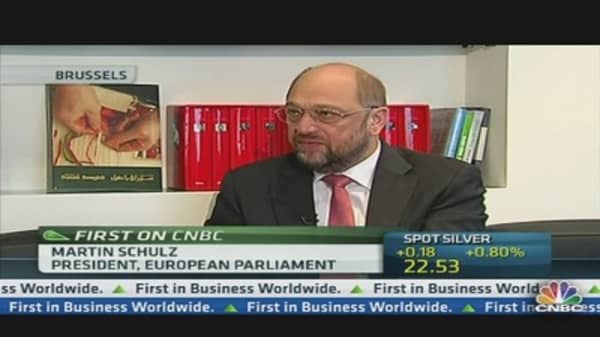Schulz's comments come after EU regulators confirmed on Tuesday that they will cap bonuses for bankers earning more than 500,000 euros ($644,230) a year.These bankers will be unable to receive bonuses of more than one times their annual salary, although this can be extended to twice their salary with shareholder agreement. The European Banking Authority estimates the cap will affect 4,796 staff across 23 banks.
The cap will also affect bankers who earn bonuses of more than 75,000 euros ($96,634) per annum, if the bonus is worth at least 75 percent of their salary.
In his interview with CNBC, Schulz denied the cap would make it hard for European banks to attract talent,saying that other regions will follow suit.
(Read More: Tim Cook: We Pay 'Every Single Dollar' in Taxes Owed)
"If we decouple bonuses from short-term speculation - and this speculation on derivatives is one of the biggest risks to the EU and U.S. banking system – if we start, then other regions of the world will follow," he said.
Schulz added that major banks had flagged concerns about decreased competitiveness.
"I take note about the message from the banks. Deutsche bank contacted me to say that I am one of those reducing their competitiveness, but I doubt this is true," he said. "My experience is always that if you put a burden or a reform on the shoulder of a bank, or on ordinary citizens,their first reaction is 'You are limiting my possibilities to act.' This is admissible,but I doubt that this is really a reduction of competitiveness.
- By CNBC's Holly Ellyatt, follow her on Twitter @HollyEllyatt




